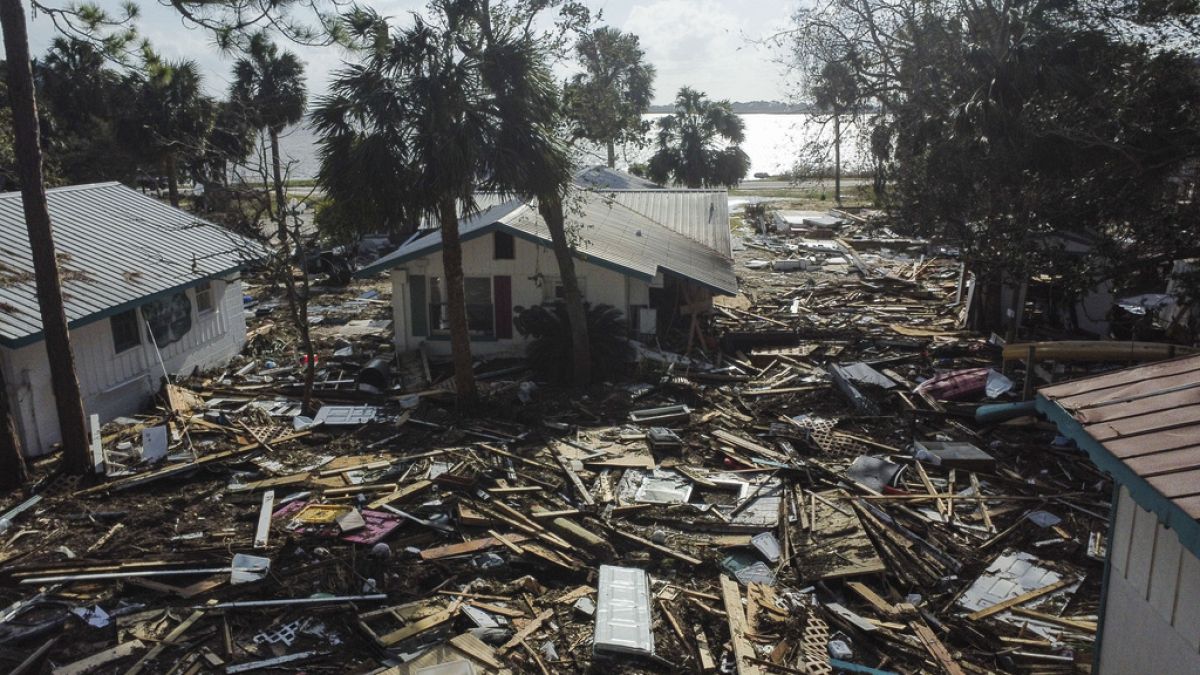Hurricane Helene, once a Category 4 hurricane, has left a trail of destruction and dozens of deaths across the south-eastern U.S., resulting in billions of dollars in property damage. The storm hit Florida, Georgia, the Carolinas, and Tennessee, uprooting trees, destroying homes, and causing severe flooding in the region. The aftermath of the storm left over three million people without power and prompted evacuations in many areas due to the risk of dam failures and flash floods.
The catastrophic impact of Hurricane Helene was felt in various states, with at least 44 people killed, including three firefighters, a woman and her 1-month-old twins, and an 89-year-old woman. Tornadoes and record-breaking rainfall in places like Atlanta exacerbated the damage. The storm also highlighted the vulnerability of communities in the region to extreme weather events, with some neighborhoods completely flooded and homes washed away by raging waters.
Climate change has been identified as a contributing factor to the intensification of storms like Helene, which rapidly develop in warmer waters and unleash devastating power in a short period. The impacts of these storms are felt by individuals like Susan Sauls Hartway, who lost her home near Ezell Beach in Florida due to the hurricane. Hartway’s story reflects the struggles faced by many residents in the affected areas who have lost their homes and livelihoods.
The aftermath of Hurricane Helene has prompted rescue and relief efforts across the region, with the Federal Emergency Management Agency deploying workers to assist in rescues and recovery. President Joe Biden expressed his support for the survivors, and officials warned residents to avoid floodwaters due to safety hazards. The magnitude of the storm’s destruction, as seen in lost homes, flooded neighborhoods, and disrupted infrastructure, will require long-term recovery efforts and assistance for affected communities.
The destructive impact of Hurricane Helene extended beyond Florida, affecting neighboring states like Georgia, the Carolinas, and Tennessee. The storm caused landslides, dam evacuations, and road closures, with some areas experiencing flooding worse than anything seen in decades. The devastation in the region underscores the urgent need for climate resilience efforts and disaster preparedness to mitigate the impacts of future extreme weather events.
As communities in the south-eastern U.S. begin the process of recovery and rebuilding after the devastating effects of Hurricane Helene, the focus remains on providing support for those who have been displaced or lost their homes. The widespread destruction caused by the storm serves as a reminder of the growing threat of climate change and the need for proactive measures to protect vulnerable populations and mitigate the impacts of future hurricanes and natural disasters.










